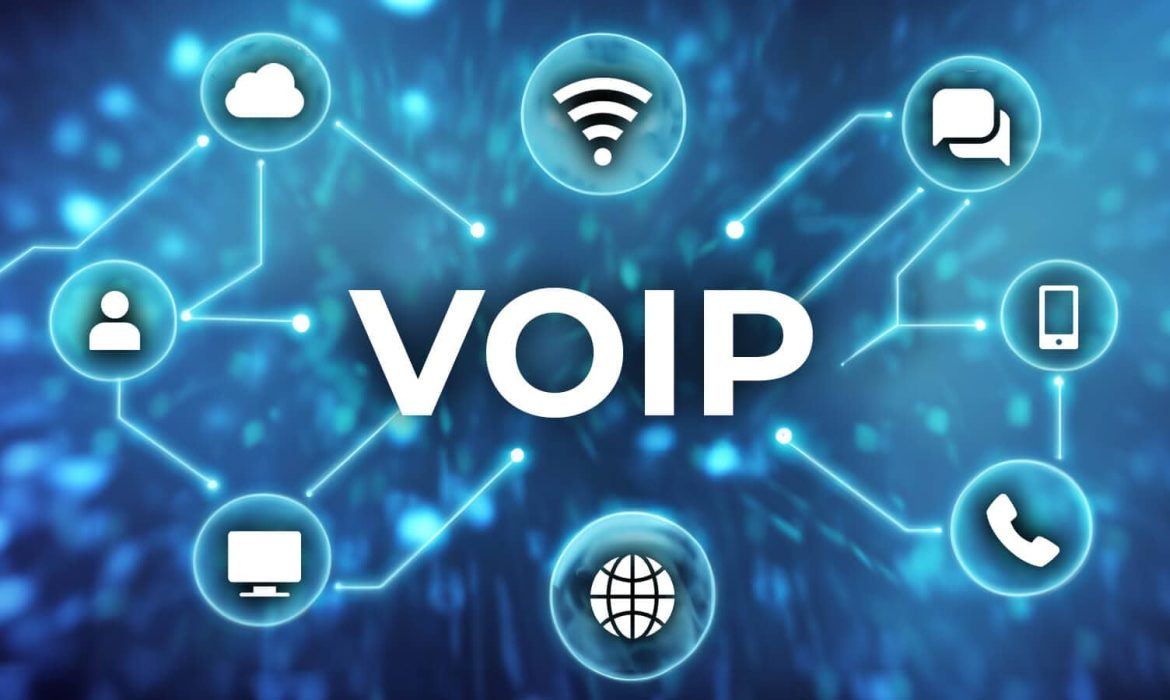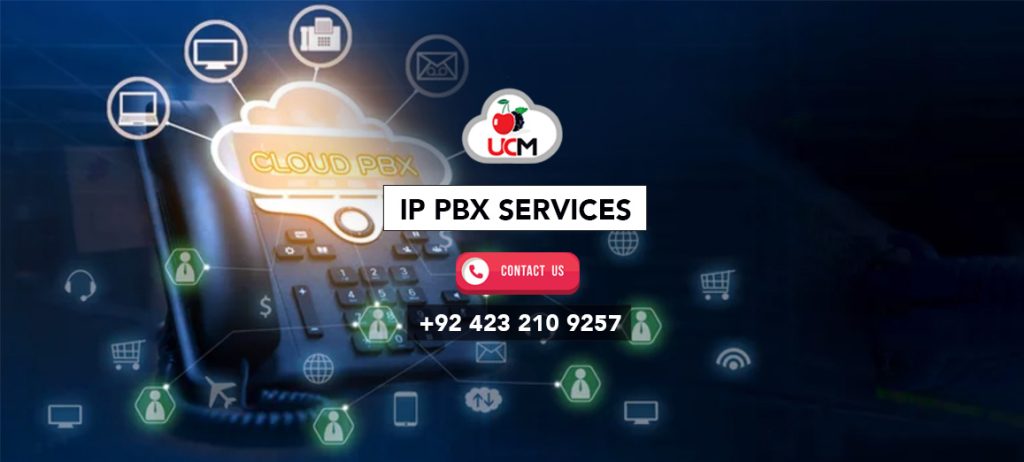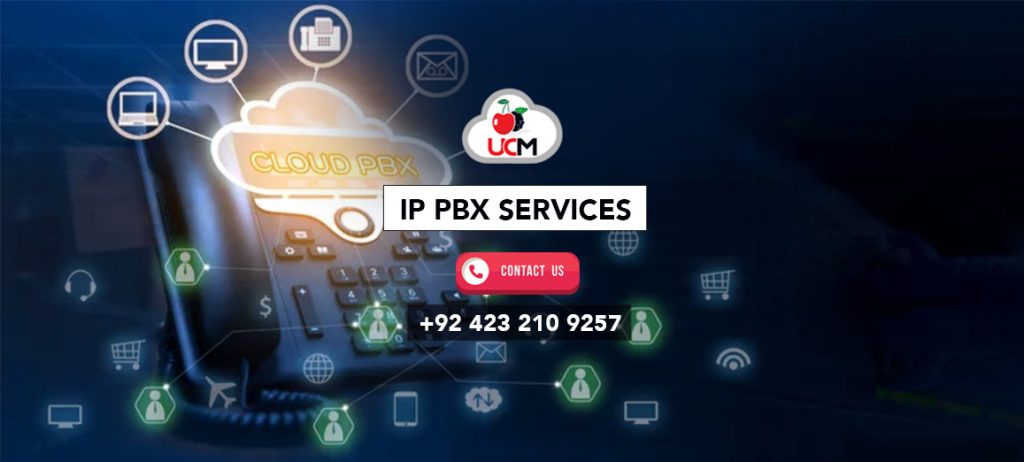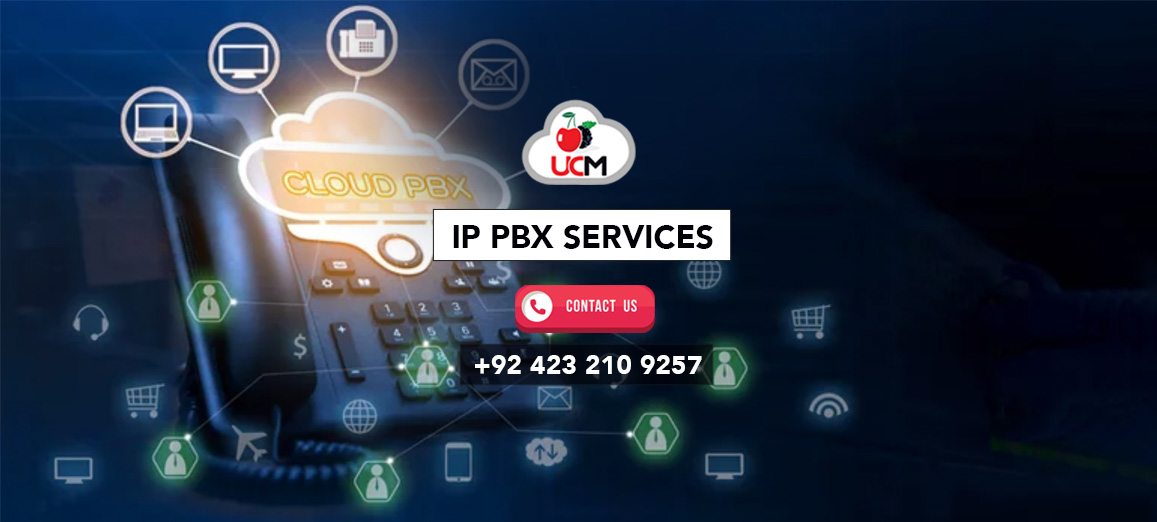From Traditional PBX to VoIP PBX: A Comprehensive Transition Guide
Why Switch to Advanced VoIP PBX?
Today, companies have adopted remote and hybrid approaches besides in-office work to manage communication challenges. There is a need to ensure a smooth flow of internal and external communication and solve issues efficiently. This feat seems impossible with the conventional phone system, but you can manage your communication just like your business needs with an advanced VoIP PBX system. Being costly and less flexible, traditional PBX has phased out and is being replaced by the latest VoIP to provide seamless communication inside and outside your business. If you are considering upgrading to an advanced phone system, this blog is to address your concerns.
What is a VoIP PBX System?
This advanced technology is a great solution for connecting multiple phone lines of a business. It enables your employees to speak to each other and outside clients on the Internet without using a public telephone network. Traditional PBX contains hardware and uses a public telephone network for incoming and outbound calls, was quite expensive and limited in functionality. However, advanced VoIP-based PBX use the internet and are more flexible, affordable and feature-rich. These systems send and receive data over IP networks by converting analogue signals into digital data to transmit over the internet. They are also cheap to maintain and implement making them the best choice for small and medium-sized companies.
Evolution Journey of VoIP-Based PBX Systems
Analogue Era: Traditional PBX
The earlier legacy systems operated on analogue technology comprised copper wiring and physical switchboards. The analogue PBX has limitations in terms of functionality, features and scalability. Companies had to depend on manual operators to manage extensions and connections which increased operational costs and led to inefficiencies.
Transition to Digital: IP PBX System
Later, the Internet reshaped the communication infrastructure. With the advent of IP technology, the PBX system underwent a huge transformation. These systems use the power of the Internet to transmit voice data and offer seamless integration with other tools and services. This transition offers unified communication solutions to businesses, enabling them to access voice, video, and messaging from a single place.
More Advancement: VoIP-Powered PBX
Advanced VoIP phone systems manage and route business calls using the internet connection. This flexible and cost-effective solution for all-sized enterprises allows you to make and receive calls on VoIP PBX phone systems Providers or softphones. Companies can also get advanced features like voicemail, conference calling, and integration to improve productivity and enhance communication efficiency. These are even the best options for companies that employ remote teams. They can access the system and benefit from all features your internal teams use.
Step to Migrating from Legacy Systems to VoIP Technology
Before upgrading to advanced VoIP-based PBX, consider these key points to ensure a smoother transition.
Evaluate Your Existing Infrastructure
First, review your existing communication infrastructure to determine which PBX system you are using. This also includes information about its capacity and the condition of cables and equipment. This analysis will provide detailed insights about where to start and what you need for the transition.
Set up an Interdepartmental Team
Your entire business relies on a communication system so you should efficiently address the communication concerns in different departments. You can pick representatives from teams such as IT, customer service, HR and operations to help them understand potential challenges and technical aspects. Consider technical and non-technical departments to establish a foolproof VoIP migration strategy and optimise business communication.
Choose a Reliable VoIP Service Provider
The next step is to search for the right partner to start your VoIP journey. Do research on different service providers and compare their price plans and offerings as well as your budget. Collect information about the features they offer, the reputation they have and the level of support they provide. Don’t make the quick decision but choose the service provider that suits your business needs.
Train Your Employees
After selecting the service provider, concentrate on training your team. Although upgrading to a VoIP system can be a huge change for your employees, getting them ready for the transition is important. You can provide them with training about using the new system, familiarise them with new features and address their concerns through videos or tutorials. Trained and well-informed employees will make the migration smoother and easier.
Develop Network Infrastructure
Proper connectivity infrastructure is also important for a seamless transition. These advanced communication systems depend on internet connectivity. Thus, you should know that an unstable and weak connection can lead to a call dropping due to poor call quality. Import your existing phone numbers to the new service, backup voicemails, and other configurations from the previous provider. Ask your service provider to check the existing numbers to ensure everyone reaches you easily.
Strategise Your Migration Plan
To ensure a successful migration, companies must create a business plan that breaks down resources, expenses and deadlines. A robust disaster recovery plan can further reduce the risks of data loss as a result of data breaches and system failure. Following the guidelines can ensure a seamless and smooth transition from PBX to advanced VoIP systems.
Ensure Proper Security Measures
Your business phone system should not be vulnerable to security threats. Don’t let cybercriminals access sensitive business information and affect your business communication. Establish strong security protocols like encryption and firewalls and regularly update your system. Implementing multi-factor authentication, proper encryption and authorised user access can ensure data security over the network.
PBX to VoIP Migration Testing
In this step, it is checked whether everything is going according to plan. Your service provider conducts a practical evaluation before configuring the new system and tests every app, software and integration to avoid networking issues and finalise last-minute adjustments. After successful migration, you can implement tests to check the quality and clarity of audio calls, business tool integrations, call routing and forwarding and conduct performance tests to ensure everything functions correctly and efficiently.
What are the Three Phases in the Transitional Approach for IP PBX?
- Phase 1: Adding IP PBX: In the first stage, the service provider adds an IP PBX and IP/SIP phones to the existing network to create a telephonic connection between PSTN, PBX, and IP/LAN. The IP PBX uses the current PRI trunk and offers a three-legged solution and smart way to connect teleworkers, remote offices, features, and providers.
- Phase 2: Addition of Ports & Trunks-Natural Expansion: It lets companies add more telephony ports to facilitate the natural expansion of the network. They can also benefit from a USB-based channel bank to expand extensions.
- Phase 3: Remove the Legacy System: Finally, when your system is ready to replace the traditional PBX, eliminate the legacy PBX. Now, you must rely completely on your IP system to meet their business telephony needs.
Top Advantages of Transitioning from PBX Setup to VoIP Systems
Companies always ask about the benefits of migrating to VoIP and why it is better than a legacy system. Advanced VoIP-based PBX offers countless benefits, such as you can transfer countless multimedia files or doing video calls with your device. Moreover, they are cheaper and provide better call quality than legacy systems. Let’s learn in detail why advanced VoIP technology is a better option.
VoIP are Scalable & Flexible
Unlike legacy systems tied to a single location, VoIP systems are more flexible allowing users to access the system and make or receive calls on any device, any time, anywhere. These systems are highly adaptive to the changing business needs and allow users to remove or add lines or scale up or down considering business needs through software. Furthermore, you did not need expensive hardware upgrades or physical installations as required in the legacy system.
Cost-efficiency is Another Plus Point
Traditional systems require high initial costs for developing and maintaining infrastructure. Thankfully, VoIP systems facilitate communication over the Internet so you do not need to invest in infrastructure and maintenance, it is also your vendor’s responsibility. You can make long-distance calls to multiple countries easily without paying a huge long-distance calling fee. Businesses can manage high-volume calls efficiently and integrate the system with existing tools and apps to increase efficiency.
They are Easier to Operate
Moving from a traditional to a VoIP system means accessing features that are not available in the legacy system. Additionally, upgrading in PBX is time-consuming and requires source parts but VoIP systems can be upgraded in a few clicks. You can use the system anywhere, making it the best solution to continue your business, even on the go.
Comprises Advanced Features
Unified communication channels such as email, messaging, and voice calls, all available in one application, can streamline business communication. Team members can easily switch between different platforms or apps to get the information they need. Incoming calls are automatically routed to the most suitable agent or extension,n depending on the caller’s needs. This ensures the call always connects with the right person/ department/extension to keep the customer satisfied.
Support Mobility & Remote Work
Many businesses have staff who work remotely or travel regularly. VoIP solutions give your business access to their internet-connected devices wherever and whenever. For instance, they can make and receive calls through softphone mobile apps, talk to customers and collaborate internally without wasting their time. Indeed, VoIP systems are suitable for companies that employ remote professionals to improve service quality.
Offer Ease of Integration
VoIP systems offer countless integrations, especially integrating customer relationship management systems to provide real-time access to customer information. Companies can analyse customers’ activities and interactions, highlight pain points and offer efficient and personalised service. They can integrate countless tools to improve service quality.
Future-Proof Solution
Legacy systems are outdated now, and enterprises still use them, facing limited support and compatibility issues. Conversely, VoIP systems are simple to update and more future-proof, allowing companies to continue benefiting from the latest technology. These systems are more compatible with chatbots and AI, ensuring more personalised and automated conversations.
Secure Calling & Versatility
VoIP systems provide secure calling to keep information protected from hacking. Meanwhile, authentication features ensure that only authorised persons can access the system to ensure security. Thus, this functionality makes VoIP solutions more secure than traditional legacy systems vulnerable to hacking and other security issues. They offer advanced features such as video conferencing allowing your employees to communicate face-to-face. Moreover, you can mark your local presence in multiple locations to enable customers to trust your services.
Provide Clearer Call Quality & Increase Productivity
Another advantage of VoIP is clearer voice quality due to advanced codecs. These codecs compress or decompress voice signals to provide more natural-sounding calls. They also contain noise-reduction features that further reduce background noise to make the voice easy to understand. Your teams can understand the issue and provide faster solutions. Furthermore, collaboration becomes easier among your employees, and efficient communication further increases productivity.
Easier Employee Management & Wireless Communication
Administration can easily add agents or employees and manage them through apps. They just need to log on to the admin app and add users by filling out their basic details. Moreover, admin staff can also delete or modify the user whenever required. Additionally, removing and deploying phone numbers is also not necessary but your teams can communicate through their devices. This also saves money by eliminating the need for separate desk phones or landlines for each agent. They can manage internal and external communication through softphone apps on their devices allowing them to connect from anywhere.
Final Thoughts: A Way Forward
Do you think your legacy system holding your business back? Today, it has become more challenging than ever to keep everyone connected. However, the Best VoIP PBX Services In Lahore can enable you to communicate easily, no matter where your team is. Another plus point is that you can save your hard-earned money by switching from an old-fashioned phone system. Are you considering migrating from a legacy system to the latest VoIP and searching for a reliable vendor? Look no further and contact CherryBerry UCM experts to get the communication system that skyrockets your business communication to new heights!
10 Key Reasons Your Business Needs an IP PBX System
Significance of IP PBX System For A Business
Today, companies have many ways to contact customers and clients, such as live chat, SMS, or email. However, phone calls are still used in most forms of communication. Customers contact your business to discuss their concerns or negotiate over services. Technological advancements have replaced the traditional landline system with a robust IP PBX System. The latest systems are easier to install and maintain. At the same time, cost-efficiency is another important factor that motivates companies to switch to the latest solutions to streamline internal and external business communication. Let’s delve deep into the top reasons for investing in IP-based systems.
1. Easy to Install & Configure Than Legacy System
The system works as a computer-based software while the advanced processing capacity of the computer, user interface, and features increase its efficiency. Any of your team members with a basic understanding of computers and networking can install and maintain the system. Conversely, proprietary systems need trained IT experts for the purpose. Meanwhile, IP PBX is cloud-based so upgrades and maintenance are your service providers’ responsibility. It saves your time and money which you can invest in other important tasks.
2. Web/GUI-Based Interface Makes Management Easier
Another reason to prefer IP PBX over traditional systems is the GUI or web-based configuration interface. This functionality lets you maintain and adjust your phone system easily. Conversely, proprietary systems have complex interfaces that could be easier for your teams with the latest IP solutions. Only IT or phone experts can use these systems. Thus, a web-based, easy-to-use interface in IP PBX has made it a preferable choice for companies that want to cut costs. Likewise, your teams with basic knowledge can maintain the latest systems.
3. Facilitate International Calls, Saving Significant Costs
Monthly costs are substantial in the case of traditional phone systems, especially when it comes to long-distance or international calls. However, the latest VoIP providers allow you to manage such calls, saving significant monthly costs. Businesses with offices in different locations can link their branches with a single telephone system. The VoIP solutions facilitate making free phone calls between different branches. Hence, IP PBX is the best option for those handling international calls.
4. IP PBX Systems Eliminate The Need For Phone Wiring
The term ‘IP’ is a short form of internet protocol that means the systems allow communication over the internet. It also means that IP phones are directly connected to the computer network port (you can share it with adjacent computers). Meanwhile, you can easily install software phones on your PC without bulky phone wiring in the office phone system. Moreover, adding or removing extensions or users is time-consuming with traditional systems. However, you can install or transfer extensions without hassle using the latest Cloud IP PBX Solutions.
5. IP PBX Systems Do Not Support Vendor Lock-in
Advanced IP PBX solutions follow the open SIP standard, enabling businesses to match and mix any software phone or SIP hardware with any VoIP service, PSTN gateway, or SIP-based IP PBX. Meanwhile, this facility is not available in proprietary phone systems. This is because they require proprietary phones to use the latest features or proprietary extension modules to add more functionalities.
6. IP PBX Offers Great Scalability
A business’s communication needs increase as it grows or expands. Companies often require costly hardware modules to add extra lines or extensions to legacy systems. Thankfully, this is different with advanced VoIP solutions. You can easily scale up or down following your unique or fluctuating business requirements. Adding users, phone lines or extensions is possible with just a few clicks within no time. You can easily add more phones or extensions to your network to expand.
7. Improves Customer Satisfaction & Productivity
Being a computer-based system, IP PBX offers countless integrations. It means that companies can integrate their phone functions with business applications and streamline how they manage business operations. For instance, your teams can automatically get detailed insights on customers’ past interactions, leading to enhanced customer experience. It also reduces the time spent on managing each call. Happy and satisfied customers also bring revenue to your business. Hence, it is worth considering the latest IP telephony solutions.
8. Provide Twice the Phone System Features At Half-Price
Moving to advanced VoIP systems opens up new doors for unified communications. This software-based technology facilitates developers to improve or add features easily. The advanced features in the VoIP phone systems like voicemail, auto-attendant and reporting are easily available at low costs. Meanwhile, video and audio conferencing and instant chat promote unified communications but are expensive in legacy systems. Thus, VoIP systems are a great breeze for businesses with budget constraints.
9. Facilitate Hybrid Working Model, Hot Desking & Roaming
Nowadays, hot desking has become increasingly popular. This process allows companies to shift offices or desks considering the task. For instance, if you want to move to a new location in a legacy system, extensions must be re-patched. However, the advanced IP systems eliminate the need for patching, allowing users to take their phones to the new desk and start working. Meanwhile, the hybrid working model has also gained popularity in recent years, facilitating working from home, which traditional systems do not offer. Remote teams can also roam and answer calls to their extensions like in the office or divert calls anywhere, benefitting from SIP protocol characteristics.
10. IP PBX Systems are Easier & User-Friendly
Your employees often need help using advanced features in the IP telephony system. Furthermore, transferring a call or setting up a conference in the traditional systems demands detailed instructions. Thankfully, IP PBX offers a user-friendly GUI so your teams can easily set up conference calls or transfer a call. Businesses can also stay updated on inbound calls and call queues. The easy-to-use interface improves your team performance and streamlines business communication processes.
Closing Thoughts
Finally, investing in an advanced Best IP PBX Services makes a lot of sense for startups (looking to buy a phone system) and established companies (already have a PBX). This system offers significant savings in maintenance, management, and call costs. Hence, switching to the latest IP PBX should be the obvious choice for modern enterprises. CherryBerry UCM business solutions can increase the value of your business, allowing you to have complete control of your business communication. Hence, don’t hesitate to contact our professional team for expert guidance.
Why Should Your Business Move to A VoIP PBX System?
How is A VoIP PBX System The Best Choice For Remote Teams?
Seamless collaboration and exceptional customer service are essential for a business’s success today. For this reason, advanced technologies of the digital age have replaced clunky wired phone systems and given way to scalable and flexible cloud-based internet solutions. The latest VoIP PBX System is one game-changing technology that has transformed how companies connect and communicate with customers and clients. The best part of this technology is that you do not need any hardware, landlines or server rooms as you can place and receive calls over the internet making it a suitable choice for remote teams. Let’s dive deep into the basics and advantages of this technology for your business.
What is A Cloud or VoIP PBX System?
This business phone system works like a standard PBX, but without using a traditional public switched telephone network (PSTN). Instead, it depends on an Internet connection to connect phones and transmit voice and video data. Cloud or VoIP PBX as a central hub to manage internal and external business phone calls. Meanwhile, the latest features like call routing, auto-attendant and conferencing make it the best alternative to the traditional wired-based telephone systems.
What are the Major Components of A VoIP System?
1. IP Phones
The advanced VoIP-based PBX systems also use IP phones like traditional phones but are connected to the internet. They convert sound into data to transmit or can be upgraded versions of legacy phone systems connected with adapters and software running on the computer or mobile phone. Your employees also need communication accessories like a microphone and headset.
2. Internet Connection
You need a reliable and stable internet connection to run your VoIP system to ensure smooth communication within and across the organisation. Companies should consult with their VoIP PBX service provider to learn about internet bandwidth requirements to run the system.
3. VoIP Gateway
This device converts the analogue voice and video signals into data packets to transmit over an internet network. It is an efficient way to connect traditional phone systems with modern VoIP networks. This system promotes collaboration among your in-house and remote teams so they remain on the same page about company matters.
4. PBX Server
It serves as the brain of the phone system that manages internal and external communication functions like voicemails, call routing and transcription. Although in a legacy system, the server is often kept in the physical location of your office, it is hosted in the cloud instead of onsite hardware in a VoIP system.
What Makes VoIP Different From Traditional Systems?
1. Infrastructure
On-premises and legacy PBX systems depend on hardware and analogue wired phone lines. They are usually located on-site. However, modern VoIP systems function digitally using an internet connection. Thus, the system requires minimal or no hardware until you use physical VoIP phones.
2. Cost
Companies require higher upfront costs in legacy systems for installation, maintenance, physical space and hardware. Conversely, VoIP systems require lower expenses as they can work on software and internet connection. This is why your remote teams can make and receive calls wherever, and whenever needed on an internet-connected device.
3. Flexibility
Latest cloud VoIP provide greater flexibility and scalability enabling your employees to stay in touch and collaborate regardless of location. Traditional phone systems do not support remote work due to dependency on on-premises hardware.
4. Maintenance
On-premises PBX systems need frequent updates and maintenance. In addition, companies have to hire dedicated IT teams or third-party service providers to keep phone lines connected. However, the service providers host the VoIP PBX so they are responsible for all maintenance, upgrades and security.
5. Integration
Traditional systems offer limited integrations and often require specialised services and a dedicated IT team. Cloud PBX systems function over the internet so they can easily integrate with existing business tools and apps.
What are the Advantages of VoIP for Your Business?
1. Offer Easier Collaboration & Flexibility
Modern businesses need innovative ways to communicate with customers, clients and teams. IP PBX systems contain advanced features like audio and video conferencing, call recording and management features. You can manage your entire business communication through call transfer, forwarding and 3-way calling without missing any calls.
2. Streamline Call Management Through the Online Portal
Staying connected is the top priority of companies besides managing the system. VoIP system allows you to view, manage and edit users’ access through the online portal. Meanwhile, your remote and in-house teams can collaborate easily and use the same system features.
3. A Less Expensive Option
By moving to the latest cloud VoIP PBX systems, companies can dramatically reduce the expenses on infrastructure and hardware. They can also manage their business from anywhere which reduces other unnecessary costs.
4. Better Solution to Future-Proof Your Business
IP PBX systems are better alternatives to physical phone systems as they allow you to scale for future growth and increase efficiency. Companies can easily add new features and users as their business grow. It also means your business phone system will always grow with your changing needs. Furthermore, you only have to pay for the features you need that reduce unnecessary expenses.
5. Ensure Business Continuity
Another important benefit of the VoIP system is resilience. There are minimum to no chances of unexpected shutdowns and cloud technology keeps your business data secure. In case of any disruption, your calls automatically move to backup centres.
6. Facilitate Remote Teams
VoIP systems are ideal for your remote teams who can access the system from any location and make and receive calls over the internet connection. Meanwhile, they can also collaborate with in-house teams with video conferencing features.
Closing Thoughts: Make the Right Decision for Long-Term Success
Today, traditional PBX systems have been overtaken by new technological advancements like cloud or VoIP technology. They allow companies to make and receive calls over the Internet without investing in costly hardware, wired landlines and bulky servers. Meanwhile, you can scale up and down with your business’s fluctuating needs through the latest unified communication system. The VoIP systems are an ideal option for remote teams who can communicate and manage voice communication within and across the organisation seamlessly. Meanwhile, a VoIP PBX System is easy to install and maintain. Are you ready to upgrade to a future-proof communication solution? Get CherryBerry UCM assistance to develop your business communication on modern lines.
Streamline Your Business Communication with VoIP PBX System
Why Does Your Business Need A VoIP PBX System?
Today, businesses need a perfect solution to meet their communication needs and that’s the flexibility a VoIP PBX System offers. This particular business telephone system allows the transmission of internal and external phone calls through an IP network. Companies can benefit from its flexibility, cost-efficiency, easy scalability and enhanced data security. With these business phone systems, you have to pay lower call rates for both international and domestic phone calls and require fewer maintenance costs. Moreover, it is compatible with different devices including softphones, desk phones, mobile devices and conference phones.
VoIP vs. Traditional PBX? The Differences
PBX can be described as Private Branch Exchange while VoIP refers to Voice over Internet Protocol technology. These systems are designed to initiate and receive business phone calls. They work differently in terms of their pros and cons. PBX connects all phones in your office with the same network for internal and external calls. It is secure and highly reliable but setup and maintenance costs are significant. Conversely, VoIP systems use internet technology to transmit voice and are more scalable, flexible and cost-efficient. However, internet disruptions and outages can affect the sound quality and VoIP performance.
How Does VoIP Technology Need PBX?
Today, most VoIP systems work independently so they do not need a PBX system except a strong internet connection and particular VoIP phones. Many VoIP PBX System providers offer PBX features that work without on-site PBX hardware. However, it is important to note that in the case of an on-premises IP PBX or VoIP-based solution, the system needs to connect with PBX. The physical connection with the PBX systems through wiring is not necessary as they can connect with the PBX over the internet connection. If you are in search of a reliable VoIP-PBX service provider, CherryBerry UCM experts can help you achieve your communication goals.
Significant Features of VoIP Phone System
1. Call Forwarding
Call waiting and forwarding are essential features of VoIP systems. Although regular phone lines also offer these features, the latest technology offers maximum efficiency. The call forwarding feature allows your team to forward the calls to the intended destination, another extension, IVR or phone number.
2. Conference Calling
The latest VoIP interface is quite easy to use so multiple participants can collaborate through conference calling features. The participants can join the call using any internet-connected device, whether computer or mobile and can share screens and documents during the call. The VoIP systems also allow sharing a video call.
3. Call Blocking
This feature enables your team to block unnecessary numbers and spam calls to save time. It is handy when you want to reduce the limit of receiving calls. Moreover, it is an effective way to avoid unwanted calls.
4. Call Recording
Companies can use the call recording to keep a record of meaningful conversations or to identify coaching needs. They can analyze the quality of customer service and agents’ performance through recorded conversations.
5. Call Routing
Through VoIP routing features, you can route calls on any number, department, team or device within your business following specific criteria. This reduces the burden on your teams and also makes them more productive than before.
6. Automatic Call Distribution
With ACD and IVR (interactive voice response) features, companies can ensure that all calls are answered quickly. The IVR technology provides self-service options to your customers and lowers your agent’s burden.
Conclusion
The VoIP PBX system by CherryBerry UCM is a perfect solution for companies looking to elevate their customer experience with ease or want to streamline their internal and external business communication. It allows you to combine your all business communication platforms in a seamless solution to benefit your employees and customers. Contact us today to improve the efficiency of your business phone systems.







